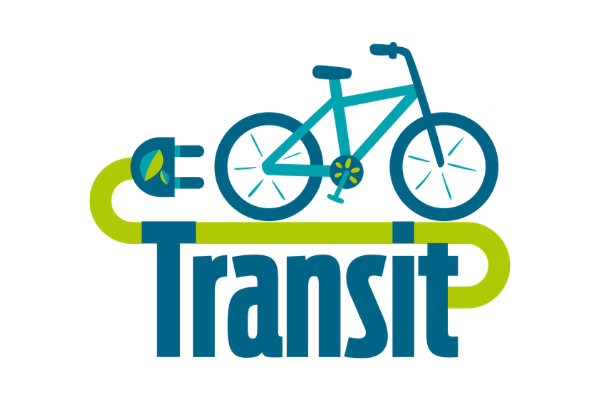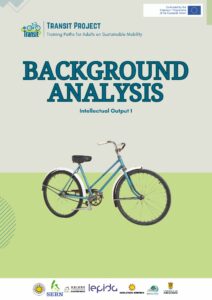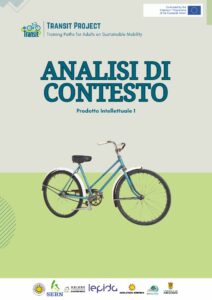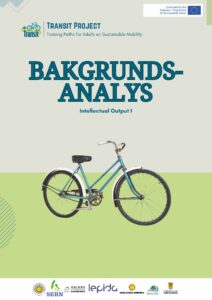

Erasmus+, KA2

Partner countries shared the common disadvantage of having accessible cycling infrastructure and paths, even if they are not fully disposed of by local citizens. Indeed, the majority of locals access these cycling infrastructures only for sports and tourism reasons. This results in a waste of public money and nullification of the local environmental policy efforts made by the partner administrations towards more sustainable and healthier mobility habits in order to reduce climate change effects by minimising the environmental impact of private cars on the local environmental ecosystems. This clearly explains why partner countries wish to induce local citizens to use alternative means of transportation, such as bikes, whose lower environmental impact is scientifically demonstrated. Indeed, local authorities observed the fact that only by enabling behavioural and mindset changes of inhabitants towards the use of sustainable means of transport, like bikes, in their ordinary daily activities could they effectively contribute to the reduction of air pollution and so to the achievement of the sustainable development goal on climate action.
The project TRANSIT aimed at raising awareness, while stimulating behavioural change, about sustainable mobility through the development of informal training paths for workers, families, and young adults, by stressing the importance of using more sustainable means of transportation as part of broader efforts at the EU level towards the creation of a more sustainable and healthier society.
The specific objectives were:
1. To develop innovative learning methods through which local civil servants and decision-makers could bring about change in the attitude of citizens, in particular workers, families and young adults in relation to the theme of sustainable mobility.
2. To create informal learning opportunities among workers, families, and young adults, aimed at increasing knowledge on environmental challenges, in particular the mobility challenge, and related solutions applicable at the local level
3. To promote behavioural change among adult learners, namely workers, families and young adults by raising awareness and engaging them in positive actions pertaining to sustainable mobility.
The main results have been the creation of innovative tools and methods promoting sustainable mobility, through which it will be possible to train civil servants and political representatives dealing with mobility and sustainability. The project will also increase the involvement of adult learners in informal learning paths about healthy habits and behaviours to be adopted by the target groups, namely workers, families, and young adults.
In order to achieve the above-mentioned objectives, during the project’s lifetime, the partnership developed the following intellectual outputs:
IO1 – The first intellectual output consists of a BACKGROUND ANALYSIS of the knowledge of partner countries on sustainable mobility to understand how much has been done so far by the partner organisations around the issue and what has been the impact and effectiveness of past efforts and initiatives on the mobility habits of local citizens.



IO2 – The second intellectual output consists of two E-LEARNING MODULES based on the testing of the informal learning strategies identified as best practices from the C1 seminar.
IO3 – The third intellectual output is the TOOLBOX dedicated to supporting local civil servants in the promotion and raising awareness of sustainable mobility among young adults, workers, and families with the aim of changing their mobility habits.

Our objective is to increase cooperation among the
members of the network, between Italy and Sweden
and, more in general, the North and South of
the European Union.
Stradone Martiri della Libertà, 15 – 43123 Parma (PR) – Italy | C.F.: 91251370374
Tel: +39 0521686023 – Fax: +39 0521686023 – Website: www.sern.eu – Email: secretariat@sern.eu – PEC: secretariat@pec.sern.eu
© 2024 | All rights reserved | Privacy Policy | Cookie Policy